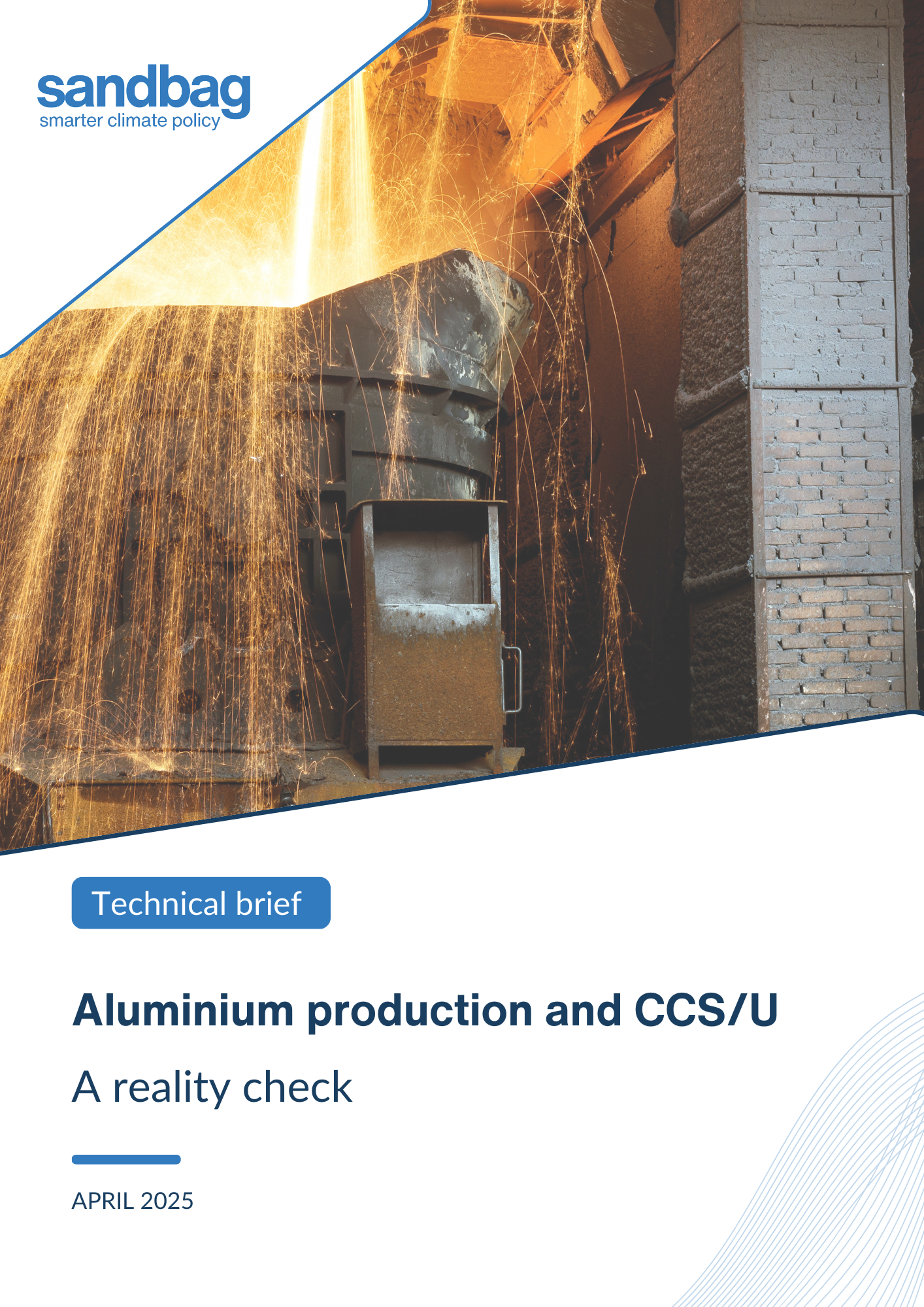The EU’s aluminium industry contributes around 2% of total industrial emissions, driven mainly by energy-intensive refining and smelting processes.
This policy brief explores why Carbon Capture and Utilisation (CCS/U) is unlikely to play a significant role in reducing these emissions — and what alternative pathways industry and policymakers should prioritise instead.

About the technical brief
Following on from our assessment of CCS/U in the iron and steel sector, we conduct another sectoral deep dive into the relevance of CCS/U, this time focusing on aluminium production.
We find that CCS/U is unlikely to play a significant role in decarbonising aluminium production. In both alumina refining and aluminium smelting, the nature and distribution of CO2 emissions present significant technical and economic barriers to widespread CCS/U deployment.
This technical brief highlights more practical and scalable pathways:
- Fuel switching & energy recovery is expected to slash alumina refinery emissions
- Inert anodes are a breakthrough technology to eliminate smelting emissions at the source
- Increasing circularity to reduce demand for primary aluminium and strengthen industrial resilience
- The analysis finds how Europe’s aluminium sector can cut emissions and stay globally competitive — without CCS/U.
Key findings
Alumina refinery emissions can be tackled through fuel switching.
Electrification and energy recovery can reduce refining emissions close to zero well before 2050.
Smelting emissions are hard to capture — and better options exist.
Inert anodes, now nearing commercial deployment, provide a long-term solution that eliminates process CO₂ emissions entirely.
Maximising circularity will be essential.
Secondary aluminium production uses just 5% of the energy of primary aluminium production, and must be maximised in Europe to reap economic as well as environmental benefits.
To deliver real emissions reductions in aluminium production, policy frameworks and investment should focus on:
- Maturing technologies for electrifying refinery processes
- Commercialising low carbon smelting technologies like inert anodes
- Maximising aluminium recycling within Europe
Read the full technical brief to learn more.
Photo by gyn9038 from GettyImages
Related publications
Lost opportunity of carbon market reform leaves a lot to fix in ancillary laws
On 13 December 2022, the European Commission, Council and Parliament reached a provisional...
What’s new in the ETS trilogues? Benchmark revisions (or not!)
This weekend, the European Commission, Parliament, and Council are set to finalise an important...
Innovation’s Black Friday
The EU’s Innovation Fund, launched in 2020, is one of the world’s largest programmes funding...



